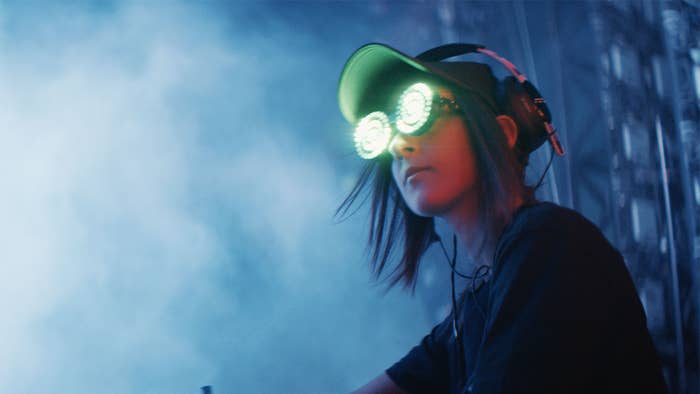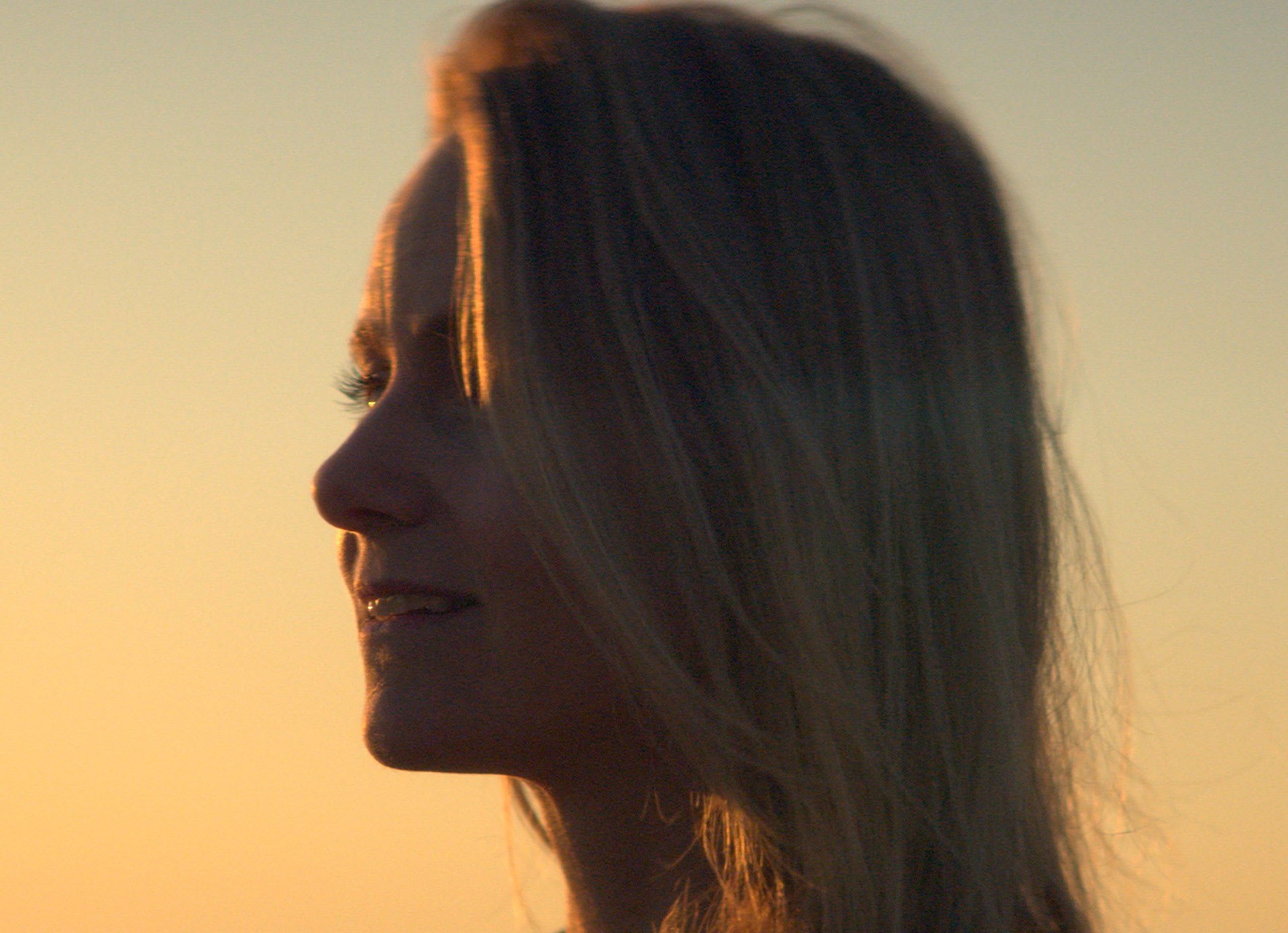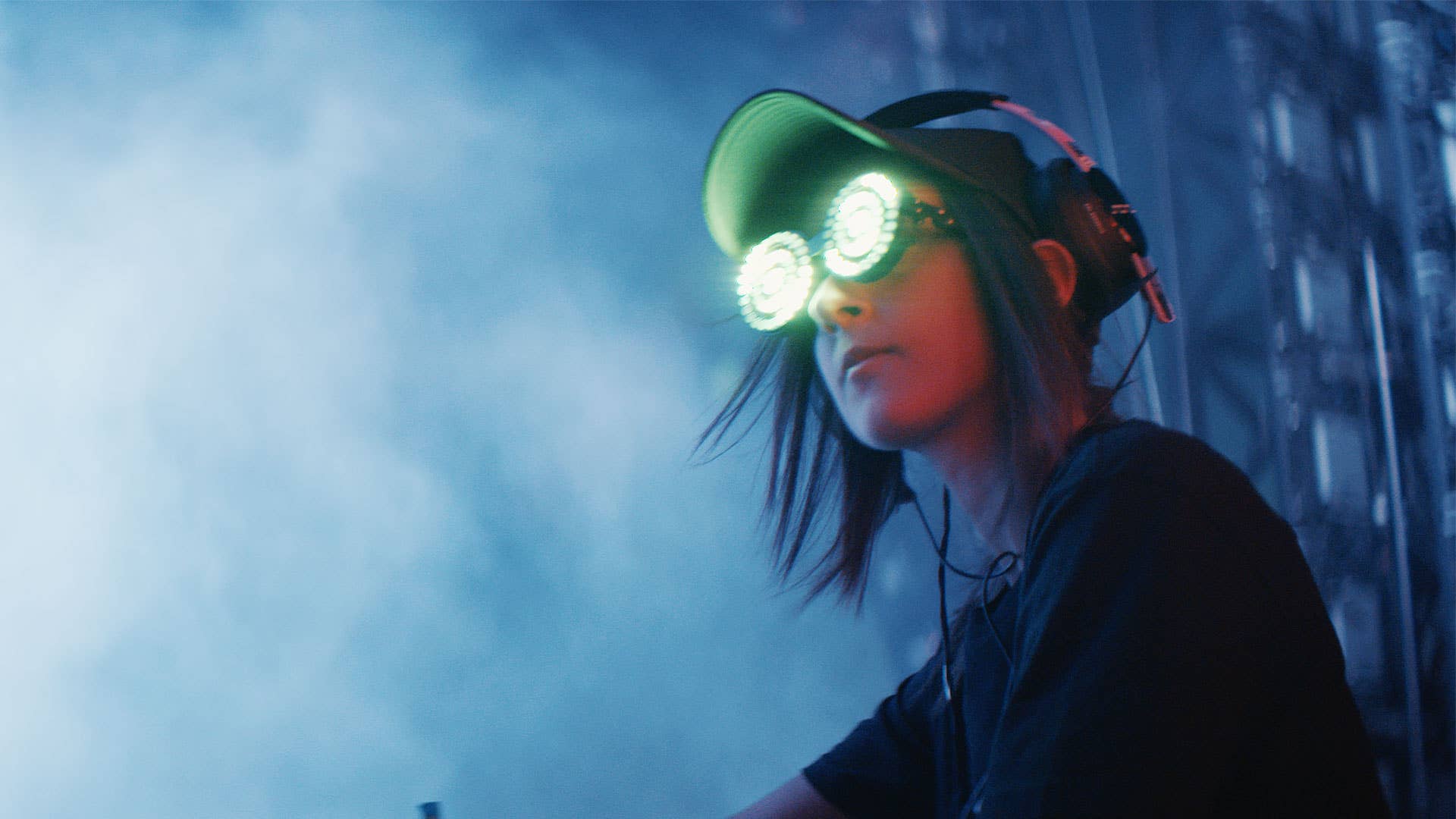
“When festivals say there aren’t enough women, we say look harder. Talent is everywhere. Opportunity isn’t,” says Maxie Sedge of 50/50 gender balance initiative Keychange in director Stacey Lee’s new DJ/producer documentary Underplayed, covering the ridiculously disproportionate amount of females on festival lineups, and their struggle to get there.
The film—which premiered at the Toronto International Film Festival, followed by an appearance by Canadian DJ/producer Rezz (No. 39 on the Billboard Dance 100 artist ranking of 2019)—shows the reality in the EDM world for females: lack of opportunities, dismissal of accomplishments or skills, online trolls, sexist and racist quotas, and the usual fight to the top women have in male-dominated fields.
Spearheaded by Bud Light Canada, and co-executive produced by renowned Canadian music video veteran Director X, Underplayed hits you with the stats off the bat: the appalling lack of women in the top 100. Only five. In Billboard’s list, in addition to Rezz, Alison Wonderland sits at No. 36, the duo Nervo at No. 82, and Tokimonsta at No. 98. All four are interviewed for the film. The fifth is Nina Kraviz at No. 94 (two other women appear as part of unisex groups, the duo Sofi Tukker at No. 73 and trio Clean Bandid at No. 34).
DJ Mag’s Top 100 DJs of 2019, more European focused, contains Kravitz, Nervo, and Wonderland, and some names that aren’t on Billboard’s list: Miss KB, Mattn, Mariana BO, Peggy Gou, and Charlotte DeWitte. But the point is taken. Very, very few women.
Director X, born Julien Lutz, tells Complex Canada he wasn’t surprised by the stats and what he heard from both the mainstream and underground artists. He wanted to back the doc because he feels a certain affinity for the women: “I already come from a underrepresented community in the entertainment world, being a Black man, person of colour, even coming out of the hip-hop world. I know what it's like for people to make judgments about my skill set just because I’m different,” he explains.
“That being the case, I’m empathetic to the larger struggle of all people who have the ability but are disregarded because, in this case, they’re women, and then it starts to pile up as the documentary gets into, ‘Yeah, you’re a woman, but you're a woman of colour or you're queer or you're…’ People say you just can't be as good. The film is a chance to make those voices heard and make it clear that that's all bullshit.”
We talked to Lee, a New Zealand native living in Los Angeles, about the film and her broad approach to the subject, which begins with the history of women’s contribution to electronic music and ends by highlighting the fierce changes and programs to make sure lists in the coming years will eventually have more gender parity.
So how did you get involved with this project?
The nucleus of the idea came from work that Bud Light were doing with DJs. As part of that, they were doing interviews and what kept coming up over and over again, among the female DJs was this issue of inequality within the space, about the lack of opportunities, the lack of equal rights. I had already done a film four years previous that touched on this subject and Director X approached me because he knew that I had a better knowledge in this space and said, "Hey, would you be interested in this?" To be honest, it took me a second because I was like, "I've already covered something like this [2015’s short doc Live Fast, Draw Yung]; surely it must be getting better?" But coming from an industry that is also very underrepresented, in terms of its acknowledgement and representation of women, I quickly delved into the statistics and I was like, ‘Whoa, there’s definitely a story here.’ So I basically did three months of research, just jumping on the phone speaking with many different artists at different levels, of different backgrounds, different genres, just to hear firsthand their experiences. And then I was like, ‘Okay, there’s a lot to be told here.’
Is this your genre? Did you attend raves or listen to dance music growing up?
I'm a music lover in general. A lot of my work, just like X's, we cover all genres of music. Yeah, as a teenager I went to a couple of raves. I'm now older and I have a two-year-old son. It was definitely a very fun experience dipping back into that world and making this film. [Laughs.] I'm a dancer by nature. I do a lot of choreography and movement and I do a lot of that in the kind of work that I do on camera as well. So I'm always interested in stories of music and particularly the culture that surrounds that.
"Over and over again you see one woman headlining a festival and no one else because 'We've already reached our diversity quota.' 'We've got that one Black woman. We don't need another one.' The white male category doesn't get scrutinized the same amount."
You said you did preliminary research just to get a handle on the issues. As a journalist, people often think I have an agenda, that I tailor the interviews to fit a viewpoint, as opposed to letting the answers dictate the story. I assume it’s the same for a filmmaker. What were some of the things that you discovered that you just had no idea were issues?
You're totally right. For me, so much of this was actually about holding the space for these women to tell their own stories and my job, rather than trying to like pull stories with a certain angle, and particularly in the beginning of production, [was] actually just listening, and the same things keep coming up over and over again.One of the biggest things, even the artists that are the top of the game, was how it's taken them years to be taken seriously. Mark Ronson talked about this in his interview; he was like, "I'm surprised when you’ve got these A-list artists and they're shouting at me," and he's like, "Why are you shouting? I'm listening to you." And they say, "You don't understand. I've been in the room with a lot of other producers, males, and they don't listen to me because I'm female." It's almost unbelievable to think that, but sometimes it's really hard to be taken seriously, or it takes another male to validate your idea before people will actually listen.
What made it clear it's because they're female and not because that male just has a huge ego and doesn't listen to or value other males either?
Most of the time they find themselves being the only female in a studio and a lot of the times when they are presenting or pitching ideas, their ideas are heard less than others. I'm only sharing what was presented to me and some of the anecdotes and experiences they have. I think this is the truth of it. A lot of it is hearsay and the experience of, but when you start to hear enough of it over and over again, there is some sort of chasm there. It obviously moved into how hard it was for them to have success. And for a couple of the artists it got so frustrating that they now do everything themselves—produce, mix, engineer—because at least then they know that they can get their product out there into the world in the way that they most authentically want it to be. So many of the women in the business wear all of these hats. They work so hard. That was something I was able to witness while making the film.

I've always known and seen women DJs at the local level here in Toronto. Is the main issue that they don't get the opportunities to play on bigger stages and grow their audience?
I would say that’s a huge problem. I would agree with that for sure. The artists we spoke to in Toronto, they do talk about the fact that in the underground scene, particularly, there’s such a beautiful and burgeoning growth and music was born from these fringes of diversity. It was electronic music, dance music, born from these very diverse LGBT, Black, Hispanic roots. It's the opportunities at festival stages, where over and over again you see one woman headlining a festival and no one else because "We've already reached our diversity quota." "We've got that one Black woman. We don't need another one." The white male category doesn't get scrutinized the same amount. This is the artists talking about that frustration of women pitted against one another. It's like there's only so much room for you in this space.
You talked with the odd booker and promoter, even fans for the film. What do they say?
Every single one of them is very different. It was very important to me that this film reflects both sides of the business. Also, it's not just women speaking in this film. I wanted to ensure that there are male voices contributing, too, because it's going to take both sexes to change and move forward this issue; otherwise it's just women screaming into an echo chamber. For me, it was very important having this diversity of voices. We spoke to fans. Fans are noticing a lot of the big-name artists. It's that notion of 'if you can't see it, you can’t be it.' If you see a woman headlining on the stages, it's really changes the amount of women considering getting into producing and all the rest of it. It's very important those role models exist. In regards to the bookers and the promoters, that's a really challenging one. There is a scene within the film where we speak to a major booker and promoter for a big festival in Toronto. The person, a woman, who is in charge of that role, is a very diverse female herself. But she's also under the gun to ticket sales. "We have to be able to book the sure thing" and, unfortunately, the way the industry works, so many of the sure things are the artists that are on the top 100 list. And, in 2019, only five women were on the top 100 list.
So you can see how one area immediately affects the other area, and then that ultimately flows on to pay, as well because women or people who don't make those lists will never get paid as much or never get booked as much. So it’s cyclical. That, to be honest, is a large part of what this film was trying to show. It’s a very complicated issue, and I tried to try to tell it through the actual story of these characters so that we can humanize it, but there is no perfect solution. There’s a bunch of solutions with everybody acting and being aware and being accountable for their actions that's actually going to move this issue forward.
In the end, after talking with the industry, are you hopeful for change? Many festivals have pledged to Keychange to make their festivals and events 50/50 gender balanced.
Keychange has really taken off a lot in Europe and being picked up in Canada. The U.S., it has a lot further to go to infiltrate that space; there’s much more commercial airplay in the U.S. I think half of it is forcing that awareness and making festivals accountable to what their line-ups are because when you have a more diverse lineup, you attract a more diverse audience, which actually means more money, more profit. The Keychange initiative is amazing. Initiatives like the Inclusion Rider, which Hollywood is a big proponent of with [actress] Frances McDormand. Inclusion riders [a provision assuring diversity on, for example, the crew or cast or lineup] are amazing because that actually puts the power in the hands of the women who are doing really well. We spoke a lot with the artists in the film that we featured about inclusion riders and what they can be doing and what they’re thinking about doing in the coming years to really help create this pipeline of young women, and giving them those opportunities because they really do hold the power. The headliners attract the ticket. They can actually hold festivals accountable.
The other interesting thing that is exciting to see was how many women are starting these creative incubators for teaching. You’ve got Chippy Nonstop doing Intersessions [DJ workshop] in Toronto and around Canada. You've also got initiatives that Producer Girls in the UK that's happening where women are creating the space to create a pipeline to nourishing people who are interested in, but perhaps might be too intimidated to try and get the software from their male friends or ask questions or make mistakes. It's an environment where you can really explore and be experimental. A lot of these are popping up. There’s a bunch of them in Los Angeles. And that was really exciting to see because women are taking into their own hands to make sure that the next generation don't suffer the same consequences that they did. And, as more women are coming into the industry, and because their voices have been like so few and far between, they’re really shining a light on the other minority groups that aren't being heard.
And as that's happening, this diversity is starting to flow back in and opportunities are starting to be created. You’ve got groups like Discwoman in the U.S. who are doing a really amazing job at fostering and nurturing diverse voices and sounds that wouldn't ever be acknowledged under the mainstream label structure. So that’s a huge part for me. Nobody wants to watch a 90-minute film of women complaining. No one wants to watch that, not even women. [Laughs.] A big part for me was to be really sensitive to the tone. Obviously create the space where the issues can come to the fore, but try and humanize them within these stories of these different women who are coming up in different scenes and different stages of the career. And, most importantly, not just complain, but offer what are the things that are being done, what are the solutions, and where do we go next?


